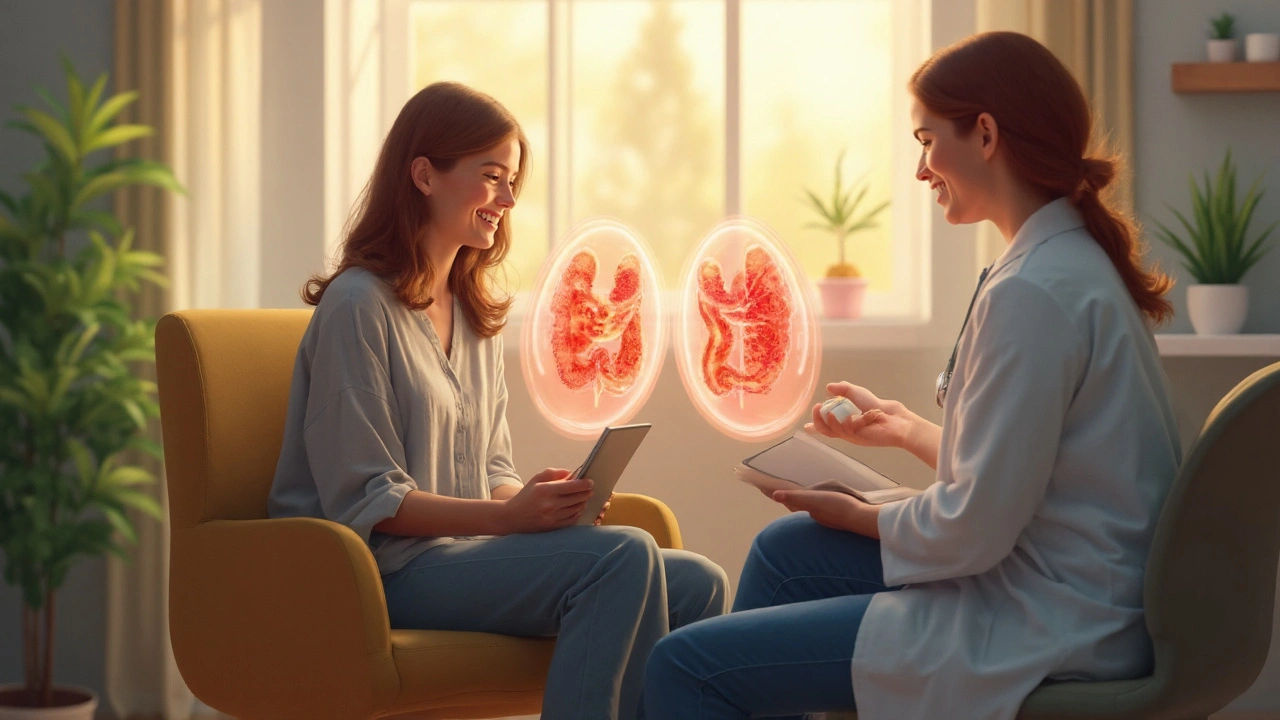UTI and IBS Connection: Understanding the Overlap
If you’ve ever dealt with a urinary tract infection (UTI) and noticed gut cramps at the same time, you’re not alone. Many people with irritable bowel syndrome (IBS) find that a UTI can flare up their stomach woes, and vice‑versa. The reason isn’t magic—it’s a mix of shared nerves, bacteria, and lifestyle factors that tie the bladder and bowels together.
Why UTI and IBS Often Appear Together
First off, the pelvic floor muscles control both bowel movements and bladder emptying. When those muscles get tense from stress or infection, they can send mixed signals to the brain. That miscommunication often shows up as urgency, frequency, or pain in both the gut and the urinary tract.
Second, the gut microbiome plays a starring role. An imbalance of gut bacteria can make the bladder more prone to infection. Certain “bad” bacteria that cause IBS symptoms also travel up the urethra, especially in women where the urinary and digestive tracts are physically close.
Third, inflammation is a common thread. IBS can cause low‑grade inflammation in the intestines, and a UTI brings inflammation to the bladder lining. The body’s immune response doesn’t always keep the two separate, so inflammation in one area can spill over and irritate the other.
Practical Steps to Break the Cycle
1. Hydrate wisely. Drinking plenty of water dilutes urine and helps flush bacteria out of the bladder. Aim for at least eight glasses a day, but avoid caffeine and alcohol if they trigger IBS symptoms.
2. Mind your diet. Fiber keeps stools soft and reduces constipation, which can pressure the bladder. At the same time, limit fermentable carbs (FODMAPs) that can cause gas and bloating, making UTIs more likely.
3. Practice pelvic floor relaxation. Simple breathing exercises or gentle yoga stretches can ease muscle tension. Try diaphragmatic breathing for a few minutes before bathroom trips.
4. Probiotic support. A daily probiotic with Lactobacillus and Bifidobacterium strains can restore a healthy gut balance and may reduce the chance of bacterial overgrowth that leads to UTIs.
5. Don’t ignore early signs. Burning when you pee or sudden cramping could be the start of a UTI. Treating it quickly with the right antibiotic (prescribed by a doctor) can prevent the infection from aggravating IBS.
6. Track triggers. Keep a simple log of foods, stress events, and bathroom patterns. Over time you’ll spot patterns—maybe spicy foods make your IBS flare, which then leads to a UTI.
7. Consult a professional. If you’re stuck in a loop of recurring UTIs and IBS flare‑ups, a gastroenterologist or urologist can run tests to rule out underlying issues like interstitial cystitis or small intestinal bacterial overgrowth.
Breaking the UTI‑IBS cycle isn’t about a single miracle cure. It’s a combination of staying hydrated, eating smart, keeping the pelvic floor relaxed, and acting fast when symptoms show up. By treating both the gut and the bladder as a connected system, you’ll give your body a better chance to stay symptom‑free.

UTI and IBS Connection: Causes, Symptoms & Management
Jul 27, 2025 / 16 Comments
Explore how urinary tract infections and irritable bowel syndrome interrelate, covering causes, shared symptoms, diagnosis, and treatment strategies.
READ MORE